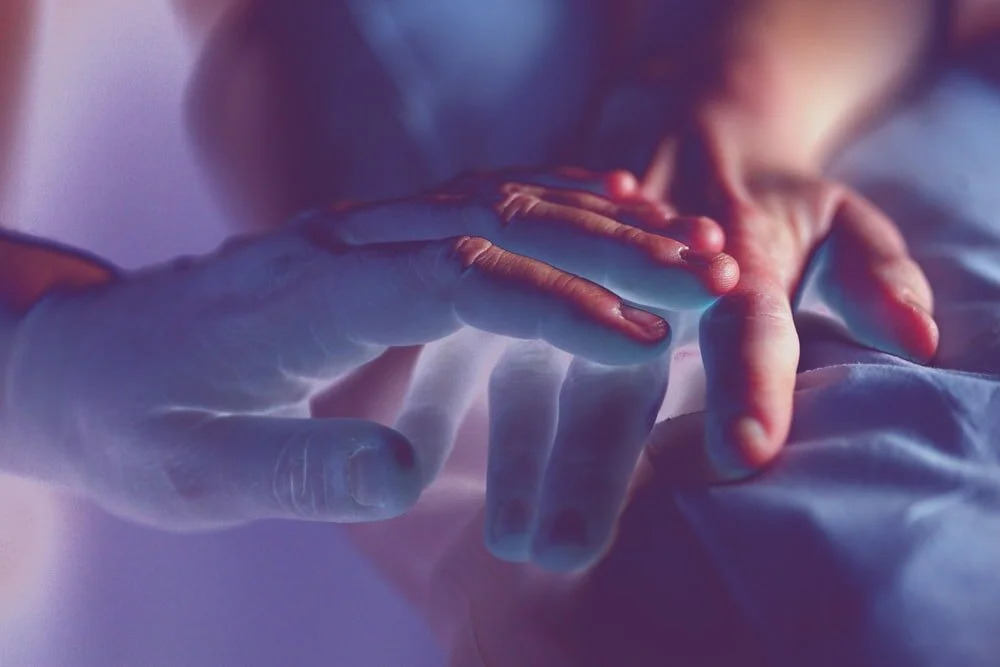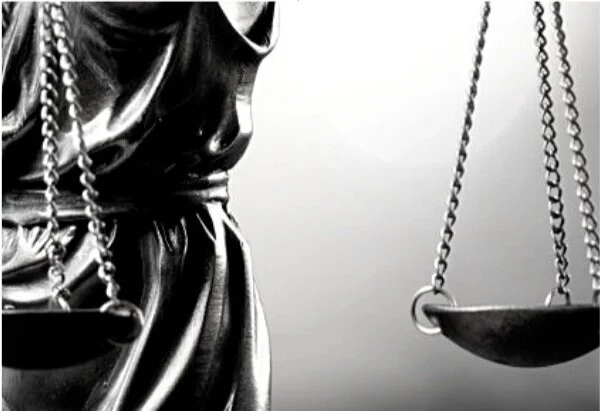Just Be: Seeing With Our Heart and Beyond Our Senses
/The Practice of Retreats
Retreats are a common spiritual practice in many religious traditions. They are an opportunity to withdraw from the world and relax into a quiet space to reflect on one’s life and the direction of the path you are on. People go in with a sense of hope and relief: Now, I can really forget about everything going on out there and just be.
Silent retreats, in particular, can be emotionally and spiritually challenging. Accessing this longed-for quiet often opens up space for unprocessed experiences to come to the surface, nudging us to look once again at old traumas, losses, and regrets. It can feel like a marathon for the soul.
About 25 years ago, I went on a silent eight-day retreat during a particularly turbulent time in my life. I was hoping I would be able to let go of a relationship and regain some of my vitality for life. I was met by my retreat director who interviewed me and asked what outcome I was hoping for. She assigned me time to sit quietly and inspirational pieces to read. She encouraged me to be in nature as much as possible. She read my soul’s longing for peace.
It was a new experience for me to allow someone to companion and nurture me. I was excited and open to this new process—until around the 4th day when all my old demons started to poke their disturbing heads into what I thought would be a time of serenity. Sister Thelma Hall, my spiritual director, encouraged me to just sit and focus on my breath, or a word, and allow thoughts and emotions to come and go without judgment or examination. “Just notice and let them pass as if they are clouds in the sky.”
She was the first person to teach me that I could “just be” without any pressure to make something happen. I tried to follow her direction; I wrote a lot, cried a lot, and slept a lot. Instead of my tendency to tough it out when difficulties arose in my outside life, I sat still and let the thoughts and emotions wash over me without trying to come up with a solution. I felt as if I was being dragged down to an abyss.
But then, by the 6th day, I began to regain a sense of emotional equilibrium. I was exhausted, but somehow joyful. By the 8th day, I didn’t want to let go of the sense of calm and harmony that had enveloped me. I couldn’t exactly say what was different, except that something heavy got released. I felt more open-hearted; I could view my life with softer eyes. I left feeling like I was embarking on a new beginning. Although I wasn’t sure what I would do when I returned home, I felt confident and committed to seeing where this path would lead me.
Parallels to Today
Sitting to write this blog, I couldn’t help but see the parallels between my personal retreat so long ago and our present experience of sheltering in place at home. At first, I—like many who are privileged enough to have the resources to sustain an interruption in a regular work schedule and who can shelter in a comfortable home—felt the social distancing rules as a break from the busyness of life. I reduced my caseload and arranged to see clients through telemental health, which gave me more time to just BE.
I got quiet inside. I slept more. My daily routine slowed down. I casually prepared meals and enjoyed sitting down for dinner with my husband before our typical 9 PM. It felt like a vacation. Then, at the beginning of April, I started to exhibit symptoms of COVID-19. Like childbirth, after it’s over, you can’t quite remember the pain, but I know I lost two weeks during which I had focused most of my energy praying that I would simply wake up the next morning.
After recovering enough to taste food again, I began to get my energy back. That’s when dreams about old regrets started to intrude, demanding my attention. Gratitude for having survived a virus that has devastated so many others was replaced with the “if only’s…” I felt as if I were in a video of a trial where my every mistake and misstep was being judged.
Now my exhaustion was not from the virus, but from an emotional cleansing that seemed to be taking place. I returned to tried-and-true practices like reading, journaling, and reflecting, listening to podcasts about the spiritual journey, and sitting in daily Zen meditation Zoom groups. They helped me remember how the very situations that most tormented me from the past were the ones that taught me the most. They nudged me to go deeper, to sit with the feelings without trying to justify, deny, or avoid them. With each passing day, I got more clarity about whom and what is important to me. I re-committed myself to exploring changes that would create more balance in my life.
It’s Not Just About Me
In these experiences, another awareness surfaced. As I was recuperating, concerns for those less privileged than me became inescapable. My suffering opened my heart to the collective suffering of those less fortunate than myself. It is clear that the virus is spreading fastest in the places of most brokenness—urban areas, among the poor, homeless, those already forgotten by systems that warehouse the elderly, and those deemed by society as “less desirable.”
What if we allowed ourselves to see with our heart the suffering our collective excess has caused? What if this COVID-19 pandemic is the crisis that is meant to move us from despair and fracture to hope and wholeness? If nothing else, it has certainly reminded us of our visceral need for soul connection. What other lessons will it have to teach us? Will we learn them and put them into action? Will we be transformed by this universal experience of vulnerability and sacrifice and suffering? How can we find meaning that will move us individually and as a collective to transform into a better version of ourselves?
Unexpected Validation
I received validation for this questioning process (one I didn’t consciously choose to go through) when a friend of mine reached out after many years. She is from the Amazonian rainforest of Brazil and a gifted healer. We chatted about what was going on in our lives. Then she gave me a gift of hope. She referenced some of the questions I had been wrestling with before COVID-19 and reassured me that I was on the right path.
“You know, Linda, this virus was meant to be a clearing for you.” She went on to speak about the purpose of my birth, how I was about to see how my life will be changed, and how this period of suffering will stay behind me. She saw the number 5 in Hebrew which symbolized balance, health, independence, and positive changes. She reminded me that my soul is about rewriting issues of injustice. She saw my mother, who passed away five years ago, smiling and reminding me that the doctors didn’t expect me to survive delivery and that I confused them then, just as I confuse them now with my work.
I was left with a sense of openness, conviction, and commitment. But what did this all mean? Living in a world that values mostly what can be known with the five senses, how am I to understand and move forward with the yearning to be part of something bigger than myself that has always been at the margins of my conscious awareness?
It is said that the greatest regret people have at the end of their life is that they didn’t have the courage to live the life they truly desired, the life that would have given it meaning and purpose. It is clear that getting sick catapulted me once again into “liminal space,” the space between the life I knew and the unknown future. Whether we name it as such or not, we all have experiences throughout our life that bring us to this threshold place. Is this pandemic meant to be the pause we all needed to reassess the value and direction of our life at this time, just as my silent retreat so many years ago gave me the opportunity to be in the place of unknowing and motivated me to reassess the value and direction of my life 25 years ago?
I have a lot to think about.
Practice of Compassion
One of my Zen teachers gave a talk recently about the power of our meditation practice to heal the world by calming our minds so that we can see with the eyes of compassion. By sitting quietly, we aim to awaken to our true self so as to be of benefit to others. When we sit quietly in meditation, our deepest self is connected to all creation.
Zen is one practice that helps us do that, and it starts with self-compassion. We focus on removing barriers within our own heart and mind to love, so as to be more present with ourselves and in our relationships. Just as fear, hatred, and ignorance can obstruct the flow of life and be contagious, so, too, can compassion and love be contagious and open up paths to communal enlightenment.
Today, we are experiencing global suffering because of the dissolution of life as we have known it. We are disillusioned because there is a great deal of ambiguity about what life will be like going forward. We are not who we once thought we were. The delusion of self-sufficiency has been shattered. This is a defining moment that invites us to ask the big questions. In so doing, perhaps we will move forward from suffering into wisdom and service. Ultimately, these answers will come when we remember to listen to our soul’s desire for care and connection.
Maybe what we know from our five senses isn’t the whole story. Maybe this chapter of our personal and communal history has a deeper meaning. Maybe we should slow down and listen to what our heart tells us about our present dilemmas. This challenge is cleverly illustrated in a short video called ”The Realization—Hindsight is 2020.” A father, reading a story to his children about the Virus of 2020—the time before and the time after—summarizes the dualistic world we lived in and how the virus brought us to our “senses.”
May we hope this to be one of the positive outcomes of our present retreat after sheltering in place is lifted.
What positive realizations have you made during your most challenging times?
Share your realizations in the comments section at the bottom of the page.
© Whatismyhealth




























Understanding our attachment styles can help us bypass destructive strategies and find a more authentic connection.